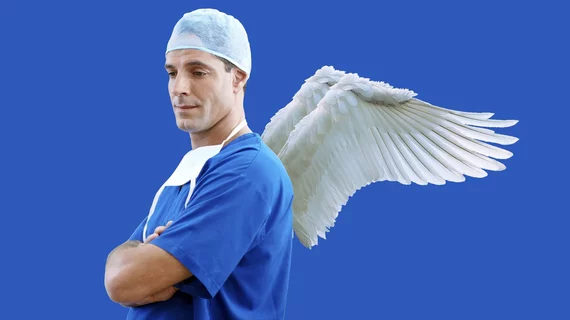Dr. Makary: ‘Just because you can get the vaccine doesn’t mean you should’
Among the many Americans refusing to get vaccinated against COVID-19 when their turn comes up is a prominent surgeon who’s also a professional medical communicator and a Johns Hopkins public-health professor.
But unlike vaccine spurners who’ll keep their arms covered over concerns about personal safety and vaccine effectiveness, Martin Makary, MD, MPH, is motivated by an abiding belief in a basic tenet of medical ethics.
“Just because you can get the vaccine doesn’t mean you should,” Makary writes in the outlet of which he’s editor-in-chief, MedPage Today. “Those with access should pause and assess their own individual risk as we are supply-constrained and vulnerable Americans are told to wait.”
Makary makes a strong case for postponing COVID inoculation to his clinician peers and colleagues, many of whom are, like him, bound to go to the head of the line sometime soon.
“High-risk Americans have gotten clobbered,” he underscores. “We have lost nearly 10% of the U.S. nursing home population from COVID-19 and 80% of all deaths have been in people over 65. Another 15% of the deaths are among those with known comorbidity.”
Given those numbers, healthcare professionals who favor the sick and vulnerable over the younger and healthier every day should keep their priorities straight now, Makary suggests.
“I’m not criticizing clinicians who get the vaccine—my personal decision might be different if I spent more time in the ICU, took more ER calls or was [at] high risk of being a silent carrier of the virus, putting my patients at risk. But that’s not me,” he writes. “Given my very low personal risk of mortality and my very low risk of getting the virus in my clinical work, I have joined a growing chorus of healthcare workers who have taken a pledge to not get the vaccine until every high-risk American has been offered it first.”

